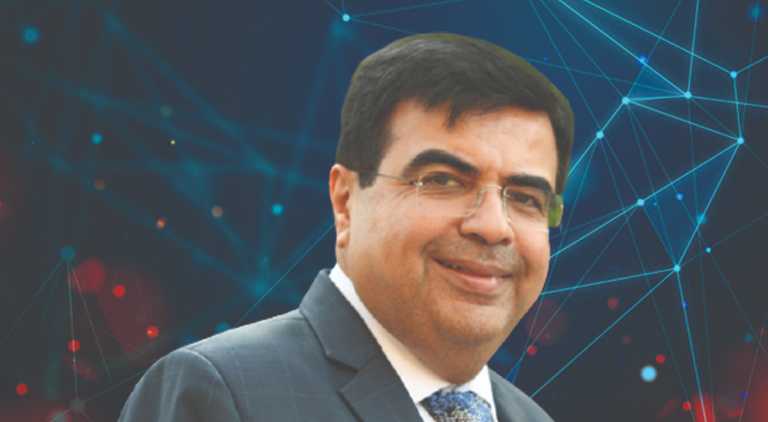Time to rewire every business strategy
By EPR Magazine Editorial October 30, 2020 7:54 pm IST
By EPR Magazine Editorial October 30, 2020 7:54 pm IST

Vijay P. Karia, Chairman and Managing Director, Ravin Group of Companies believes that the whole world has faced an economic crisis, and therefore the time has come to rewire every business strategy, with emphasis on lower costs and enhanced performance.
What’s your take on the recent performance of power sector in India?
The power sector is a very vast segment and covers both generation transmission and distribution of electricity, as well as the manufacturing of the electrical components that go into any product where electricity is consumed. Hence to broadly classify the performance of the entire sector is a little bit premature at this stage. We are seeing that demand for electricity has steadily grown and coming back to pre-COVID levels. However the manufacturing segment is still struggling with overcapacity due to lower demand and is also facing a crisis in terms of finances. Lots of large corporates are not paying the money due to suppliers and the list of such parties would perhaps encompass the entire spectrum of top-level companies in the country.
However, the silver lining in the bleak scenario is that the demand is slowly picking up – the monsoons have been good across the country and we will see a slow but steady revival of the demand and we all look forward to such increase in requirements to keep the industry running. However the next few months look bleak in terms of profitability and in terms of money generation. Government will have to come up with further impetus to spur industrial growth.
What is the future of Indian power sector in 2021?
As mentioned earlier, power sector is to generalise the term to encompass the entire industry. However if we take the demand of electricity in the country, we are going to see some much awaited massive changes in the way that the generation, transmission and distribution companies are going to govern themselves. The government’s emphasis is on saving electricity, by reducing the losses off this segment which supplies electricity.
The manufacturing industry is running in very low capacity utilisation and it can only move up from here and not down. The emphasis of not importing materials, especially if they are made in the country, is going to help this segment. However the segment requires financing from the bankers, timely payments by the parties that purchase these products, and discontinuation of certain policies like submission of bank guarantees etc. The intent of the government to set up manufacturing clusters is also commendable and would be the first time that India is seeing this kind of positive action. These actions could greatly enhance the manufacturing capability of the country, and if the government further incentivises the manufacturing and exports, we could see a healthy 2021 and could even wipe off the debt deficit that has been caused by COVID-19 in this year.
What is that one recent breakthrough policy decision that will drive the growth of electrical equipment industry in India?
There are a few policy decisions that have taken place in last few months, which are beneficial for the local industry. Amongst them is the slowdown of imports from China. The government decided that local tenders upto Rs 200 crore will be bought from local manufacturers only and the government is now keen on listening to the various industry segments to see how economic growth can be spurred.
The whole world has faced an economic crisis, and therefore the time has come to rewire every business strategy, with emphasis on lower costs and enhanced performance.
We are, apart from cables, also into extra high-voltage projects and services, solar EPC, as well as in to manufacturing of specialised power equipment. We see that mere product selling will not be enough. Therefore a lot of emphasis is being placed on installation and maintenance of electrical systems, and we have built up enough experience and credentials in this field. These multipronged approaches will help grow our business.
Despite challenges, how is your company turning the tide in its favour?
Admittedly there are huge challenges in business, especially in the manufacturing business. However this is the first time in the world’s history that all companies and economies are facing the same challenges. Hence the companies that adapt to this change scenario very quickly will always be at an advantageous position. We have very quickly adapted to the change scenario, and have been pursuing businesses very aggressively as well as bringing better products at lower costs to the customers. As I said earlier, the time is ripe for adaptation, and more importantly into survival. Hence, the Group has not only kept its commitments in terms of supplies, services and timelines, but has also been training its customers in terms of new product technologies as well as re-visiting the education which was left behind in colleges.
Our technical team has trained more than 5,000 people in this lockdown period. This has helped a lot of customers to adopt safer and better practises, which will ultimately result in benefits not only for their company but also the nation.
Today the challenge is of survival and the companies who survive the ongoing downturn will witness good demand post 2021.
Vijay P. Karia, Chairman and Managing Director, Ravin Group of Companies
We use cookies to personalize your experience. By continuing to visit this website you agree to our Terms & Conditions, Privacy Policy and Cookie Policy.